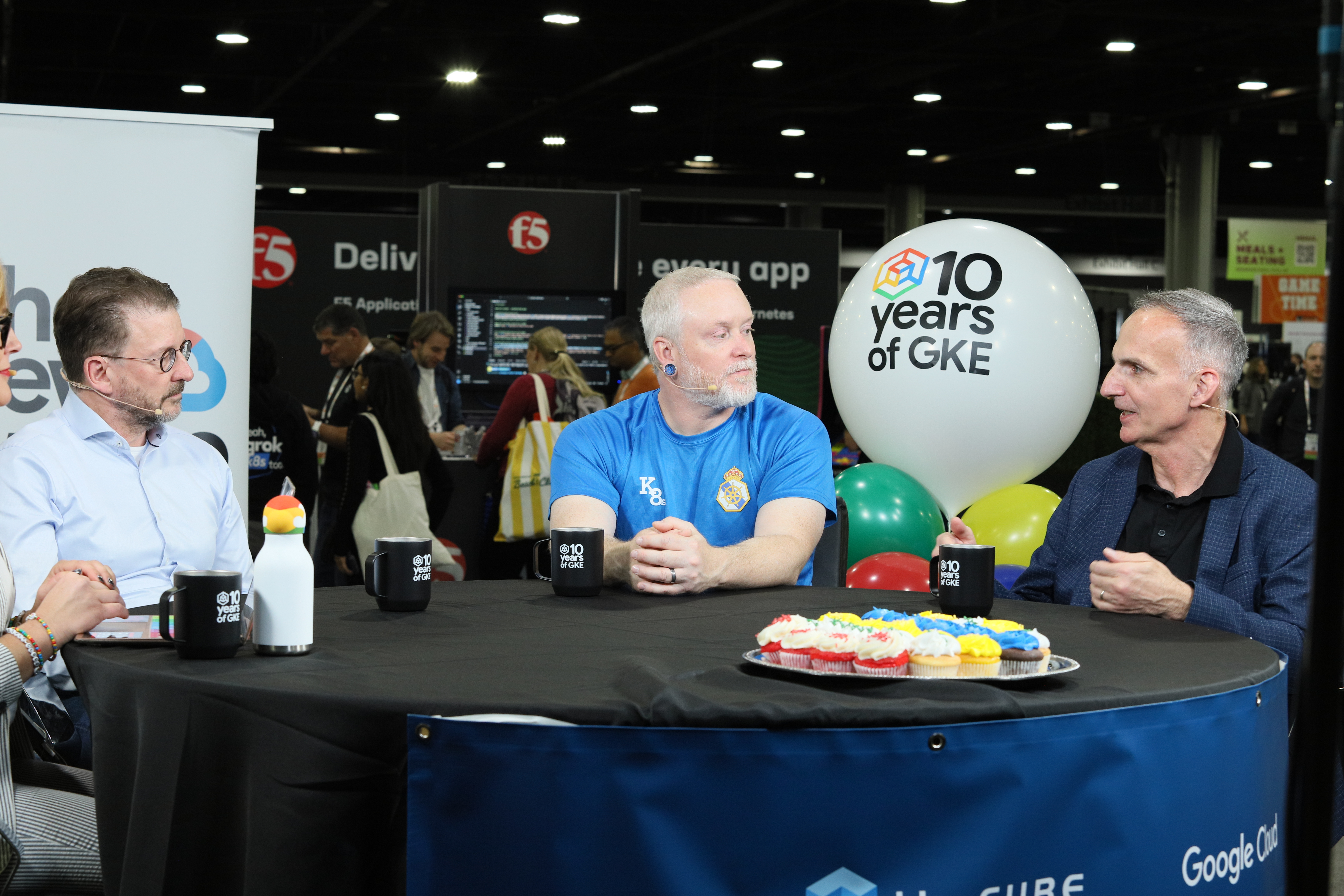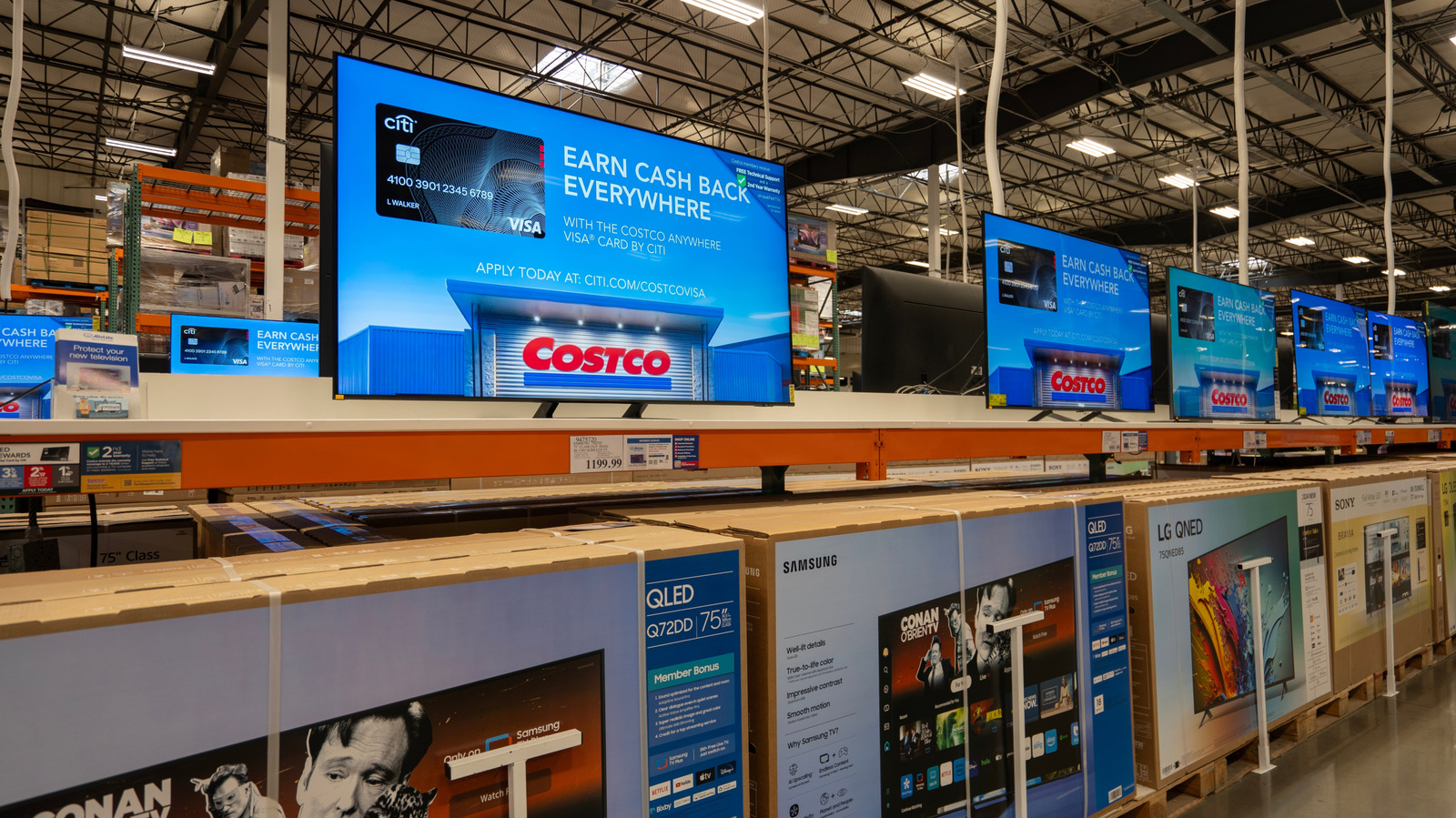Ten years after the launch of Google Kubernetes Engine, the technology that redefined cloud infrastructure is showing no signs of slowing down.
Google’s Tim Hockin discusses Kubernetes’ evolution with theCUBE.
What began as an internal Google LLC experiment has evolved into a foundational layer of enterprise computing. While company insiders shared a vision for the project to redefine open source, its real-world acceptance has eclipsed even the most optimistic projections, according to Tim Hockin (pictured, middle), Kubernetes co-founder and distinguished software engineer at Google.
“I hoped that it would be a thing that lots of people would use,” Hockin said. “I expected that it would make a splash. This is beyond what I would’ve hoped for and way beyond what I could have expected. It’s a once-in-a-career sort of thing.”
Hockin, alongside Leon Bouwmeester (left), director of engineering and head of Hue Platform at Signify N.V., and Lee Sustar (right), principal analyst at Forrester Research Inc., spoke with theCUBE’s Savannah Peterson at the KubeCon + CloudNativeCon NA event, during an exclusive broadcast on theCUBE, News Media’s livestreaming studio. They discussed Kubernetes’ open-source legacy and charted its future in an AI-driven world. (* Disclosure below.)
Kubernetes lends its power to AI workloads
The next phase for Kubernetes will involve its integration to solve AI-related challenges. Emerging trends point to a resurgence in hardware as AI workloads move closer to the edge. Kubernetes will sit inside those disparate hardware pieces and create the operational fluidity required for flexible, independent and distributed AIOps.
“Initially, there was the move toward managed services from the big cloud providers because they were there in turnkey,” Sustar said. “Now, the question is … I want for either sovereignty or security reasons, to shape my own [infrastructure]. Where are they going to do that? They’re going to do that with Kubernetes. They’ll find either a cloud provider or a multicloud container platform provider or build their own.”
Google’s continued belief in open source ensures that innovation flows in both directions. It has also recognized AI as Kubernetes’ strongest evolutionary trajectory. Signify supports this with its idea of “next-generation Kubernetes,” where open collaboration continues to thrive, Sustar added.
“The foundational elements that are coming together in the community are making that innovation happen,” he said. “I feel that it’s much more open and dynamic. And there’s a sense of … there’s competition in other fronts, but when it comes to making this work, the collaboration is there. The way people are coming together right now to try and tackle some of the problems around AI is interesting.”
As Kubernetes enters its second decade, the question isn’t whether it will remain relevant — but how it will evolve. From powering massive multiplayer games such as Pokémon Go to hosting foundation models for AI, Kubernetes continues to prove its adaptability. As the community looks toward subsequent KubeCons, one truth stands clear: the same spirit of collaboration that launched a revolution still drives it forward, Bouwmeester emphasized.
“At the moment, we have various teams all using their own infrastructure,” he said. “What we would like to do is unravel that so that we can make a step into platform engineering. The second is the use of GKE fleets. At the moment, we have multiple clusters and we have to manage them. Now, we want to throw all that overboard and exclusively use GKE fleets.”
Here’s the complete video interview, part of News’s and theCUBE’s coverage of the KubeCon + CloudNativeCon NA event:
(* Disclosure: Google Cloud sponsored this segment of theCUBE. Neither Google nor other sponsors have editorial control over content on theCUBE or News.)
Photo: News
Support our mission to keep content open and free by engaging with theCUBE community. Join theCUBE’s Alumni Trust Network, where technology leaders connect, share intelligence and create opportunities.
- 15M+ viewers of theCUBE videos, powering conversations across AI, cloud, cybersecurity and more
- 11.4k+ theCUBE alumni — Connect with more than 11,400 tech and business leaders shaping the future through a unique trusted-based network.
About News Media
Founded by tech visionaries John Furrier and Dave Vellante, News Media has built a dynamic ecosystem of industry-leading digital media brands that reach 15+ million elite tech professionals. Our new proprietary theCUBE AI Video Cloud is breaking ground in audience interaction, leveraging theCUBEai.com neural network to help technology companies make data-driven decisions and stay at the forefront of industry conversations.









